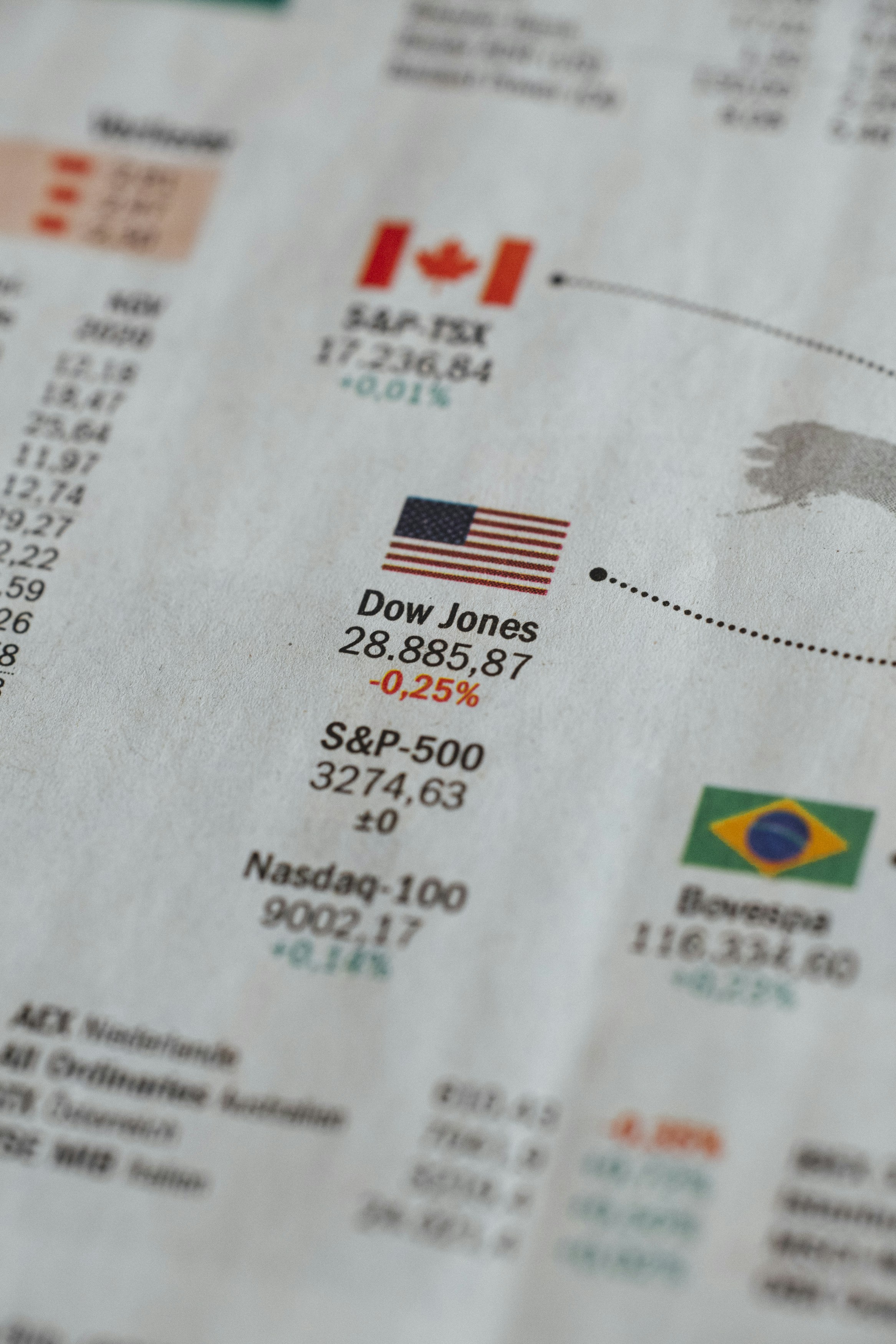
Overview of Market Opening Trends
As the trading day begins, Wall Street indexes demonstrate a positive response to recent developments in global markets, particularly following President Trump’s decision regarding Middle Eastern policy. The opening bell has revealed a notable upward trend in key stock indexes, including the Dow Jones Industrial Average, NASDAQ, and S&P 500, each reflecting favorable pre-market indicators and investor sentiment. The Dow Jones is up by a substantial margin, showing an increase of over 200 points, indicating a strong appetite for equities early in the session.
The NASDAQ is also showing robust performance, which can be attributed to the technology sector rallying in response to favorable earnings reports and optimistic forecasts from key companies. Investors are particularly focusing on tech stocks, which are known for their volatility and potential for significant gains. Meanwhile, the S&P 500 is tracking similarly, expanding its gains as broader market confidence boosts financial sectors, which have been lagging in recent weeks.
Market analysts suggest that this substantial opening is likely influenced by the easing of geopolitical tensions and encouraging economic indicators, such as rising consumer confidence and improved job data. The prevailing market sentiment appears to favor a continuation of bullish trends, reinforcing expectations for a potential rally throughout the day. Key economic metrics are scheduled for release later, which may further impact market dynamics.
In summary, Wall Street opens on a positive note amid heightened investor optimism and pre-market gains in major indexes. The performance of the Dow Jones, NASDAQ, and S&P 500 reflects a collective market belief in recovery and growth potential, setting a promising tone for the trading day ahead.
Impacts of Trump’s Middle East Decision on Financial Markets
Former President Trump’s recent decision regarding the Middle East has sparked considerable interest in the financial markets, invoking both immediate and potential long-term consequences. Geopolitical events like this historically play a pivotal role in influencing investor confidence. Uncertainty surrounding U.S. foreign policy often leads investors to reassess their risk appetite, which can result in market volatility. As news of this decision spread, we observed a notable reaction in global stock indices with many opening higher, as investors sought to position themselves for anticipated shifts in the market landscape.
The link between geopolitical events and changes in oil prices cannot be overstated. The Middle East is a critical region for global oil supply, and any political maneuvers in this area could significantly impact oil production levels and prices. For instance, if Trump’s decision leads to increased stability or confusion in the region, oil prices may see a corresponding reaction. Rising oil prices typically lead to inflationary pressures, which can further affect financial markets. Investors are acutely aware of these dynamics and often adjust their portfolios in response to avoid potential losses.
Moreover, Trump’s decision may extend beyond immediate market reactions and affect U.S. foreign policy in the region and international trade relationships. Financial markets are inherently sensitive to perceptions of how American policies affect global trade dynamics. Strained relationships may lead to retaliatory measures or tariffs, influencing corporate profitability and consumer prices. As market participants digest the implications of Trump’s Middle East strategy, their buying and selling decisions will reflect evolving insights regarding the interplay of politics and economics. The market’s initial positive opening suggests an optimism that these developments may ultimately yield constructive outcomes for investors, albeit with caution regarding longer-term implications.
Expert Analyst Opinions and Predictions
Financial analysts and market experts are cautiously optimistic regarding the early trading performance of Wall Street indexes, which displayed an upward trend following President Trump’s recent Middle East decision. This development has stirred a sense of renewed confidence among investors as they assess the potential implications of geopolitical shifts on market conditions. Analysts suggest that the positive response in trading can be attributed to a mix of factors, including anticipated stability in oil prices and improved investor sentiment in the wake of diplomatic developments.
According to several market experts, the reaction from major Wall Street indexes reflects a broader trend: investors may be adopting a more risk-on approach. This mindset is particularly evident in sectors sensitive to geopolitical events, such as energy and defense, which are expected to benefit from any potential easing of tensions in the Middle East. Expectations for today’s trading are heightened, as experts predict that the momentum observed in early sessions will be influenced largely by ongoing commentary surrounding Trump’s policies and further market evaluation of their economic ramifications.
Moreover, analysts caution that market volatility remains a significant consideration as traders navigate the complexities of Trump’s decision. Geopolitical events often lead to fluctuations that can impact investor strategies. Understanding these dynamics is crucial for institutional and retail investors alike, as they formulate their trading plans for the day. The focus will be on the performance of key indexes and their resilience amid external pressures, signaling potential shifts in investor confidence moving forward.
In summary, expert opinions highlight an intriguing mixture of optimism and caution within the market. The evolving situation in the Middle East and its impact on economic conditions will likely continue to shape trading strategies and market performance throughout the day.
Historical Context: Previous Market Reactions to Geopolitical Events
The relationship between geopolitical events and market performance has long been a subject of interest for traders and investors alike. Historically, Wall Street has exhibited notable fluctuations in response to significant political decisions, especially those arising from the Middle East, a region often at the center of global conflict. For instance, the 1973 Oil Crisis, precipitated by OPEC’s oil embargo against the United States and its allies, resulted in a sharp downturn in stock prices and a spike in oil prices, thus illustrating how political strife in the Middle East can induce widespread economic repercussions.
Similarly, the aftermath of the Gulf War in the early 1990s highlighted a brief market rally following the conclusion of military action. The resolution of conflict often provides temporary stability that encourages investment, with markets responding positively to decreased uncertainty. However, these effects are frequently short-lived, as ongoing tensions or new conflicts can quickly reverse initial gains. Another pertinent example includes the reaction to the Arab Spring in 2011; while some markets experienced initial volatility due to the uncertainty surrounding regime changes, others showed resilience as new opportunities for growth emerged in the wake of potential reforms.
More recent events, such as the assassination of Iranian General Qassem Soleimani in January 2020, further exemplify the immediate and often dramatic responses of Wall Street to geopolitical tensions. Following this event, U.S. markets experienced a swift uptick, reflecting optimism or a perceived lack of immediate threat. Traders frequently analyze past market behaviors in the context of current geopolitical developments, seeking to discern patterns that may inform future investment decisions. By examining these historical instances, traders can gain valuable insights into how international politics influence market performance, offering further context to Wall Street’s current response amid diplomatic decisions affecting the Middle East.
